Written by Brandon Okey. Mina Draskovic, B.Psy., reviewed this content for accuracy.
“This is a place to truly reset your life onto the right path. I learned such great healthy habits to live by. The staff are AMAZING so caring and friendly. I consider everyone I met at Ardu family. I truly hope the person looking for an amazing place to begin their new journey starts here… I’d give more stars but it only allows me 5. Thank you for everything you have done for me ARDU!
According to the National Institute on Drug Abuse, only 6.8% of those in need of addiction treatment end up seeking it. Be one of the lucky minority who turns their lives around by starting your recovery journey at the Ardu Recovery Center.
If you’re looking for a drug rehab or are in need of an alcohol addiction treatment center, we’re here to provide you with compassionate care and a supportive environment to help you achieve long-lasting recovery. Not only is our facility world-class, our surrounding wilderness and geography provide an inspiring and relaxing setting for our residents.
Rehab is short for “rehabilitation” and refers to a treatment program designed to help individuals recover from drug or alcohol addiction. The goal of rehab is to provide patients with the tools and support they need to overcome their addiction and achieve long-term recovery.
Drug and alcohol rehabs typically involve a combination of therapies, counseling, education, and support groups to address the physical, psychological, and social aspects of the addiction. Rehab can take place in a variety of settings, including hospitals, clinics, residential facilities, and outpatient programs.
Often, but not always, rehab follows a detoxification program that helps an individual overcome the initial withdrawal symptoms of drug or alcohol addiction.
It can be difficult to recognize and acknowledge that you or a loved one may be struggling with addiction. The Diagnostic and Statistical Manual of Mental Disorders cites these eleven symptoms. The more of these apply, the more likely a person is to have a serious drug or alcohol addiction issue.
If you notice these warning signs in yourself or a loved one, request an appointment with Ardu today and start your recovery journey.
Individuals going through rehab typically pass through the following phases.
At Ardu, we provide professional addiction support to help you through each stage of rehab. Our skilled and empathetic personnel offer comprehensive care and personalized treatment plans to ensure that you receive the best possible care for your unique needs.
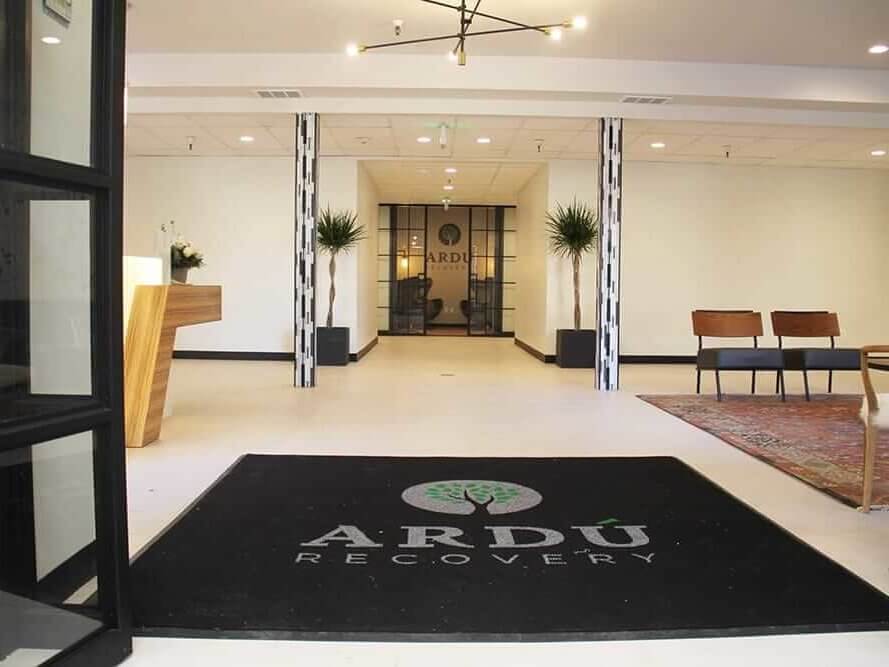
A rehab center is a specialized facility that offers treatment and support for individuals struggling with addiction. Ardu Recovery Center offers a structured and supportive environment where you can receive medical care, counseling, and therapies to overcome your addiction and regain control over your life. We’re here to help you achieve long-term recovery and a healthier, more fulfilling life.
We tailor your treatment plan to your unique needs and circumstances. Ardu offers many types of treatment, including dialectical behavior therapy, cognitive behavioral therapy, and exercise therapy. Whether you’re dealing with an addiction to drugs or alcohol, you will find compassionate, skilled people to help you in your journey to recovery here.
Our alcohol treatment provides comprehensive and individualized care for those struggling with alcohol addiction or an alcohol use disorder. We offer a range of services, including medical detox, behavioral health therapies, group counseling, family therapy, and aftercare support.
We also offer customized treatment plans tailored to meet the unique needs and goals of each patient. With our compassionate approach and experienced team of professionals, we are committed to helping you overcome alcohol addiction and regain control of your life.
Our drug rehab center offers specialized treatment programs for individuals struggling with addiction to illicit drugs, prescription drugs, and other substances. At our drug rehab center, you will receive medical care, counseling, and support to overcome your addiction and achieve lasting recovery. Types of drug rehab services we offer include:
The two main types of rehab are outpatient and inpatient. Depending on the severity of your addiction and obligations, you can choose either inpatient or outpatient treatment here at Ardu.
Inpatient rehabs, also known as residential treatments or inpatient addiction treatments, involve living in a treatment facility while receiving 24-hour care and support. Inpatient treatment programs offer a high level of care and a structured environment, with access to medical and psychiatric services, therapy sessions, and support groups. These residential programs can vary in length from a few weeks to several months.
Outpatient treatment centers allow individuals to live at home while receiving care and support during scheduled appointments. Outpatient programs include intensive outpatient programs (IOP) and partial hospitalization programs (PHP) that require daily visits. Levels of care can vary based on the individual’s needs, and sober living arrangements may be offered to those transitioning out of inpatient care.
Mental illnesses such as bipolar disorders, post traumatic stress disorders, and eating disorders, and even physical ailments such as chronic pain, can make addiction worse. That’s why it’s crucial for mental health professionals who specialize in addiction to be able to recognize a dual diagnosis and provide appropriate treatment for both addiction and mental health disorders.
In general, patients with a dual diagnosis are more difficult to treat than patients who have only one disorder because they require an integrated treatment approach that addresses both problems. (Ziedonis, et. al.)
Ardu’s mental health treatment providers are skilled at treating addiction within the context of your mental health condition. Our dual diagnosis treatment programs include:
By looking for a rehab center in Utah, you’re taking your first step in the right direction. Our facility and our caring professionals provide you with a supportive and positive patient experience.
Located in the midst of the beautiful, natural splendor of northern Utah, Ardu Recovery Center is an inpatient rehabilitation center with the perfect backdrop for recovery. Less than an hour south of Salt Lake City, Utah, Ardu Recovery Center provides a convenient location for much of the Midwest and western states. Additionally, we offer the seclusion and contemplative setting necessary for a fulfilling recovery.
Our drug and alcohol rehab center features top-of-line medical facilities and highly trained practitioners of both traditional and holistic medicines. Through a personalized plan, we ensure our residents have every tool and resource necessary to reach their goals of health, happiness, and sobriety. We work together with you and give you everything necessary to rise up and reclaim your life.
Here are a few pics of our Utah rehab and detox center. If you’d like a tour, please contact us and we can arrange it!
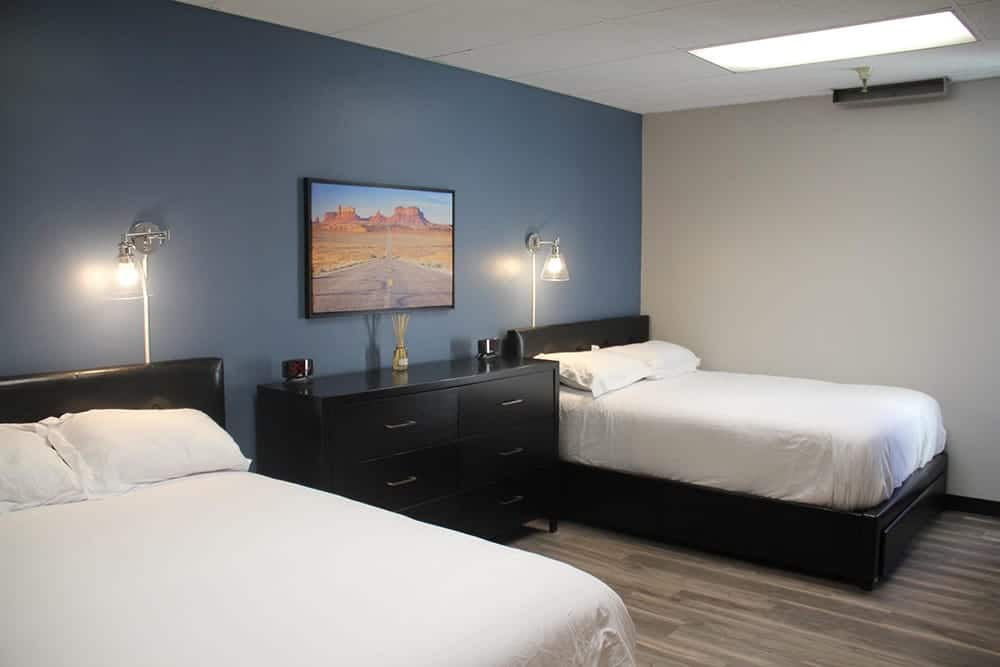
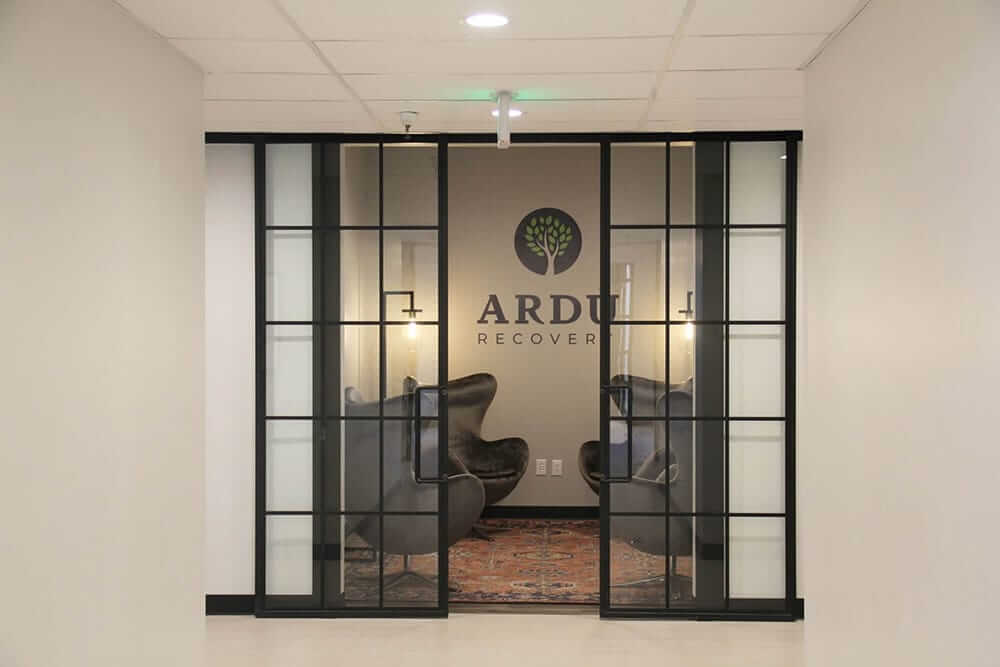
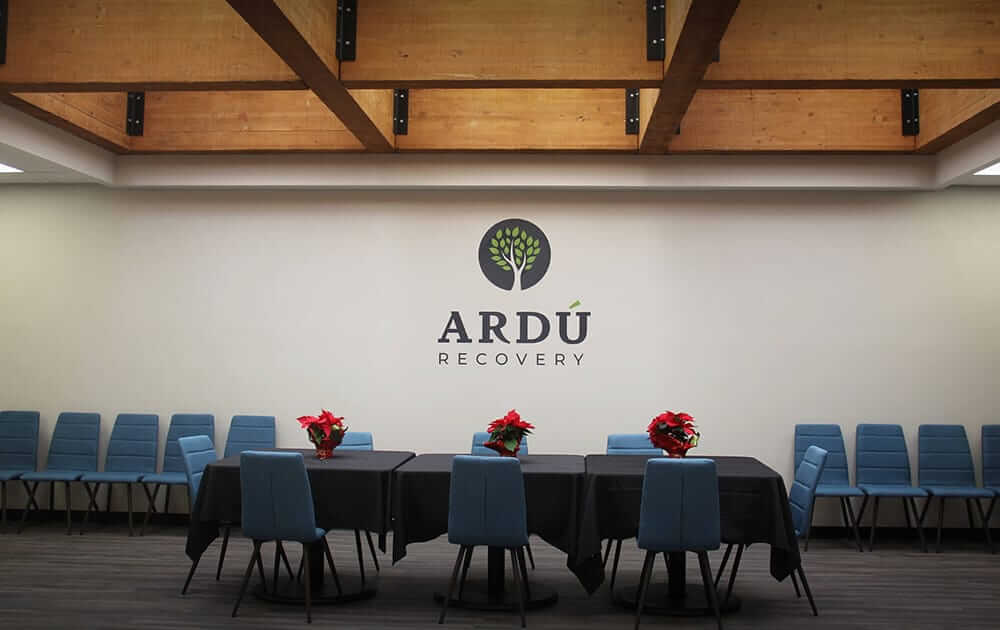
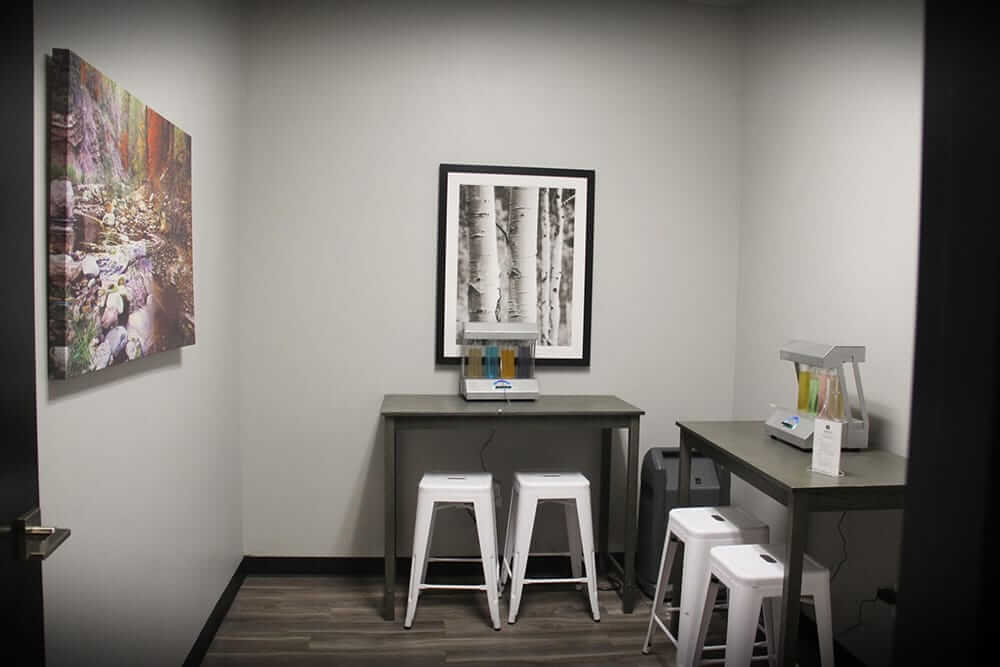
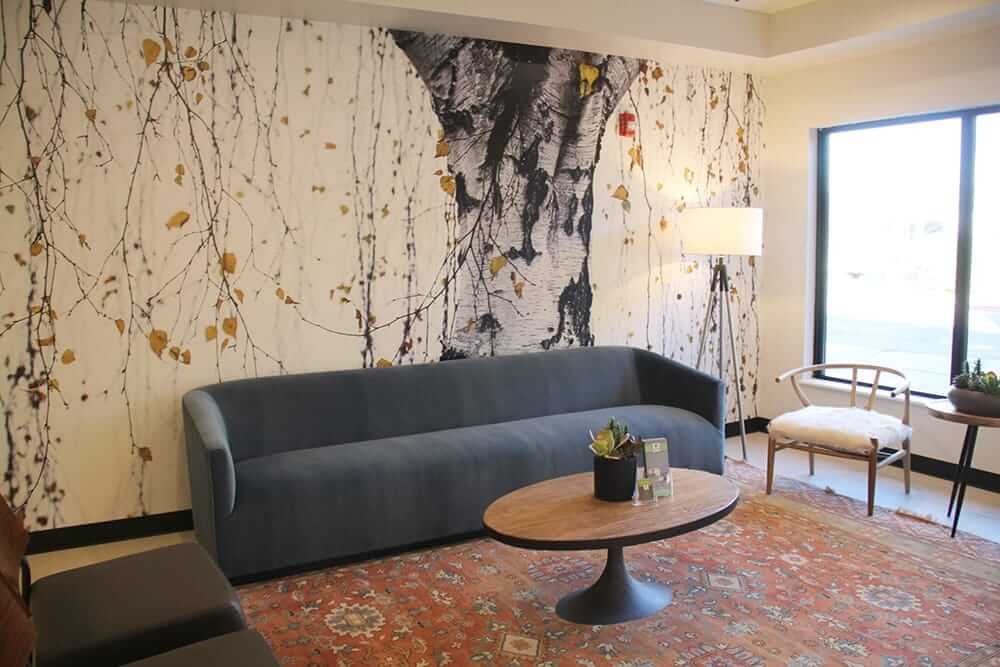

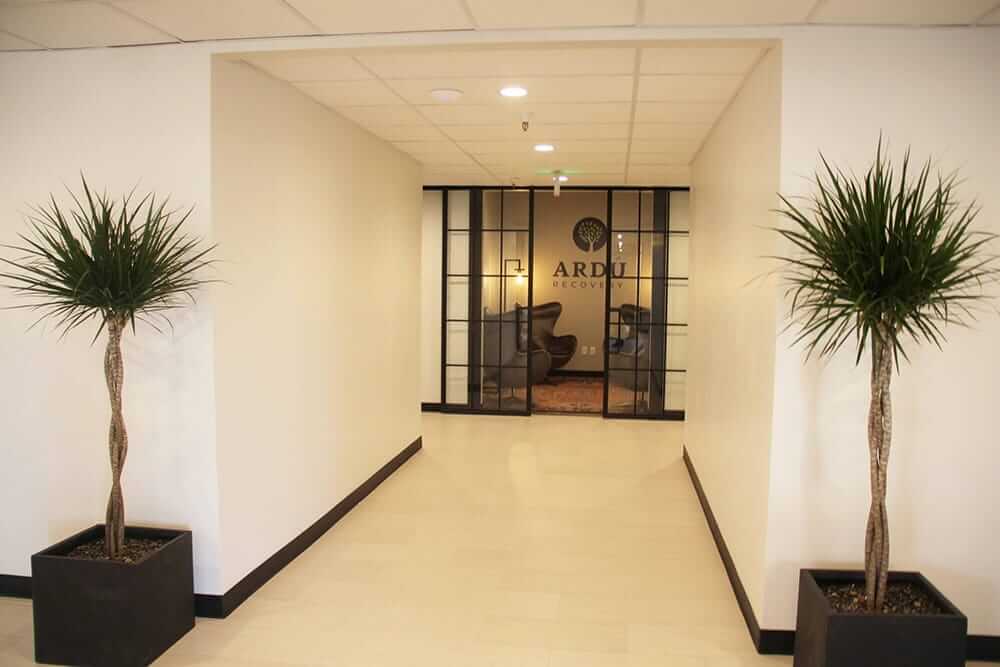
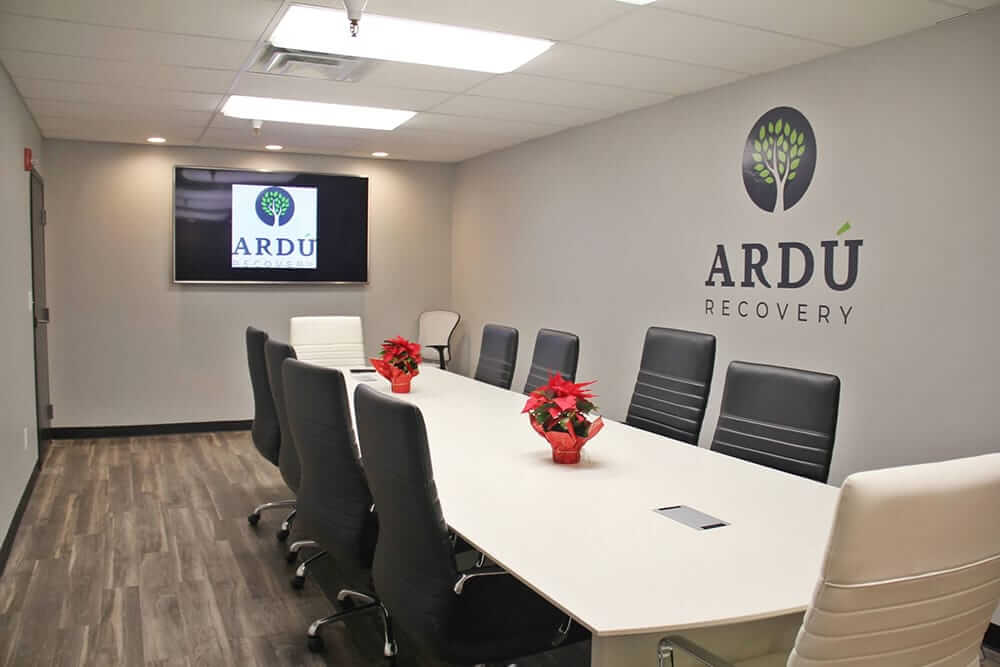
Our center exists to guide you through the detox and rehab process and to be your source of medical advice and mental health care. Our medical professionals understand your addiction and are qualified to treat you in a nurturing, nonjudgmental environment. In addition to medical care, we provide you with appropriate recovery coaching and self-help resources.
The American Psychiatric Association’s “Practice Guideline for the Treatment of Patients with Substance Use Disorder” highlights the following goals of rehab:
Understanding levels of motivation in substance abusers is crucial to determine what motivational strategies are most appropriate for each patient. The goal of motivation assessment tools, such as motivational interviewing, is to elicit the patient’s reasons for change and assist them in moving through the subsequent stages of change.
A therapeutic alliance is an empathic relationship between psychiatrist and patient that:
The primary goal of treatment is to help the patient learn and internalize changes in attitudes and behaviors conducive to relapse prevention. The strength of the therapeutic alliance has been found to be a significant predictor of psychotherapy outcome, with stronger alliances predicting less substance use and better psychological functioning by the patient.
An initial psychiatric safety and clinical assessment is necessary to establish a diagnosis and determine a baseline of the patient’s clinical status, while ongoing safety screening tools are important to detect any changes over time.
It is particularly important to assess patients for suicidal or homicidal thoughts or other dangerous behaviors such as driving under the influence, domestic violence, or child abuse or neglect, which may require changes in the treatment plan or care setting.
Ongoing assessment of the substance use disorder and psychiatric status is also necessary to ensure that the patient is receiving the appropriate treatment and to monitor the patient’s response to said treatment. Co-occurring psychiatric disorders may complicate the treatment of substance use disorders and require specific treatment plans.
Managing intoxication involves evaluating the addictive substances that the patient has used, the route of administration, dose, and time since their last use. Acutely intoxicated patients need a safe, monitored environment with reduced external stimulation, reorientation, and reality testing.
Medications that mitigate the effects of abused substances may be used to reverse their impact, such as naloxone for opioid overdoses or flumazenil for benzodiazepine overdoses. Many patients use multiple substances simultaneously to enhance, while others choose a non-medicated, holistic approach.
At Ardu, we offer both medically-assisted and alternative, holistic therapies.
Withdrawal management requires an understanding of the factors that predict the severity of withdrawal symptoms. Withdrawal usually occurs in individuals who have a physical dependence on a substance after they stop or reduce the use of said substance after a period of heavy and regular use.
Patients who use multiple substances are at risk for withdrawal from each substance. Factors that can predict the severity of withdrawal symptoms include
Ardu offers medical detox services, as well as holistic detox services. We assess each patient to determine which combination of the two is the best option for them based on the severity of their withdrawal symptoms and their personal preferences.
In order to reduce morbidity and co-occurring disorders, a health care provider should work with the patient and, when appropriate, with family members through family therapy to develop a treatment plan that meets the individual’s unique needs.
Coordination with the primary care physician is also important for managing the medical aspects of substance use disorders, while baseline screening tests should be conducted to identify any co-occurring mental health conditions.
Substance use disorders are commonly associated with substance-related medical morbidity, and neglect of preventive healthcare and follow-up medical care is common. People in recovery with a co-occurring psychiatric disorder are particularly vulnerable to the self-neglect and morbidity associated with substance use, and integrated psychiatric and substance use disorder treatment programs are recommended.
Monitoring attitudes towards treatment and adherence to specific recommendations can be useful in identifying areas where the patient may need additional support. Even with high motivation to maintain abstinence, patients may struggle with cravings and preoccupation with thoughts about substance use.
Healthcare providers can optimize patient engagement and retention in treatment through addiction counseling and motivational enhancement strategies, as well as by encouraging patients to actively participate in self-help strategies. Continued care, educating patients about relapse triggers, and developing coping skills and lifestyle changes that support sobriety can also be helpful.
If relapse does occur, it is important to encourage patients to resume treatment and adjust the treatment plan to fit their current needs. Ultimately, involving significant others in the prevention of relapse can provide additional support and help patients achieve long-term success.
Medical professionals must educate patients and their loved ones about the nature and causes of addiction, the benefits of abstinence, and the risk of switching to other addictive behaviors. The role of family and friends in aiding or impeding the recovery process can’t be understated and should be discussed both with the patient and their family.
Advice on harm reduction, such as using sterile needles, safer sex, and contraceptive options, may also be provided. Clinicians should direct patients to appropriate educational resources, such as public health services and online resources. It’s crucial to consider the patient’s cultural background and educational level when educating them on substance abuse.
Addiction specialists may collaborate with other professionals to coordinate care for patients and address their various needs. This is especially important for patients who lack resources or the ability to care for themselves due to psychiatric or medical conditions. Providing the patient with resources that can help them learn new life skills, find employment opportunities, or locate a recovery community can make all the difference in their sobriety journey.

Brandon Okey is the co-founder of Ardu Recovery Center and is dedicated to empowering people on their journey to sobriety.
Some insurance providers do pay for rehab, but not all do, and even those that pay for treatment don’t do so for every rehab center. For example, you’ll be pressed to find an insurance provider that covers luxury rehabs and luxury treatment options. Ardu collaborates with multiple insurance providers. You can learn more by visiting our rehab insurance coverage page, as well as our rehab admissions page.
Going to rehab means seeking treatment from alcohol or drug rehabilitation facilities. This can include medical assistance, holistic therapy methods, and talking to alcohol and drug addiction experts.
Rehabilitation is a comprehensive program designed to help individuals overcome the physical, mental, or emotional challenges of addiction that prevent them from living a fulfilling life. Rehabilitation programs are offered in various settings, including rehabilitation centers, hospitals, and outpatient clinics. The ultimate goal of rehabilitation is to help individuals regain their independence, improve their quality of life, and achieve their full potential.
Medication is commonly used to treat detox and manage addiction, but there is no one medicine that is best for addiction. At Ardu, we use Subutex and Suboxone medications for opioid use disorder treatment, especially during the detox phase.
The 12th step is the final step in many 12-step programs, including Alcoholics Anonymous (AA) and Narcotics Anonymous (NA), which are widely used in drug or alcohol addiction recovery. Its main goal is to give back by helping others who are struggling with addiction and sharing your experience, strength, and hope. This step encourages people to continue their recovery by helping others who are also seeking sobriety.
If you are positive for Covid-19, you will need to test negative and get the all-clear from your doctor before you are able to be admitted to Ardu.
It is advisable for pregnant people to stop taking sleeping pills. Though not all sleeping pills were proven to be harmful for pregnant people, there is not enough research on the effects of sleeping pills on fetal development to deem them safe for use during pregnancy.
Respite care is temporary care provided to people who require assistance with daily living tasks, but whose regular caregivers need a break from their caregiving responsibilities. It is intended to provide relief to family members or other caregivers who may be experiencing physical, emotional, or financial strain due to the demands of caregiving.
No, Ardu does not offer equine therapy services. Equine therapy, also known as equine-assisted therapy, is a type of animal therapy that involves working with horses to promote physical, emotional, and mental health. It can be used to treat a variety of conditions, including anxiety, depression, PTSD, addiction, and behavioral disorders. Equine therapy typically involves activities such as grooming, feeding, and riding horses, as well as various exercises designed to help clients develop skills such as communication, problem-solving, and emotional regulation.
Mina Draskovic, B.Psy., reviewed this content for accuracy on 4/30/23